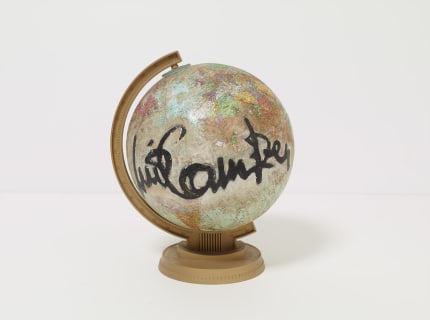After listening to my lamentations, one of my kids thought they would make a useful contribution to the field of intergenerational studies. Miguel is forty-four years old, and the fact that I still call him “kid” is one of the symptoms of what he wants me to write about. In our family, we have actually always addressed our children as people. Of course, we spoke to them like small people at first, because they were, but we have always kept in mind that dialogue is exchange, and that declaration is an abuse of power. Oddly, we only recently realized that naming children is a tool to indicate parental ownership. We called our son Miguel, in Spanish, honoring my South American upbringing. It was an anecdotal event designed to preordain his development in relation to my education. However, a couple of years ago, and without any resentment, he mentioned the burden that our choice inflicted on him. Living in a racist society, this blond and blue-eyed descendant of Celtic, European Jewish, and Slavic ancestors was made responsible for a Spanish name that didn’t fit visual stereotyping. This led to long explanations on his part about the reasons behind his name. In fact, he should have had the right to name himself and control his own affiliation. Shaped by the collective belief that parents own their children, we didn’t think that the name we gave him might affect his life, and he never challenged our authoritarian move. Luckily, we were spared the usual ambivalence that exists between generations.
Our family, at least for the most part, has functioned on a nonauthoritarian dialogic level. Things are to be reasoned out—that was also the way my spouse and I grew up ourselves. In my case, the absence of arbitrary authoritarianism at home (the only prohibition was riding a motorcycle) led to a hypersensitivity towards any show of power outside of it. As a student, I was part of a generation of know-it-alls. In our view, old people in power suffered from asshole syndrome. They were loathsome, self-interested, and exploitative characters. Our mission was to topple the old ones, take over the world, impose our impeccable beliefs and knowledge, and then everybody would be happy. However, today most people in government are at best inept and at worst genocidal. Though much younger than my generation, they continue abusing power as our ancestors did. They are therefore constantly confronting us with our failure in educating them.
While I shared some of my generation’s beliefs—including the belief that we knew better than anyone else before us—I decided that art and education were the tools with which I could help to change the world. Many of my fellow art school students made the same decision, and we set out to change the curriculum in radical ways. We organized sit-ins and got what we wanted. One of my unfortunate tasks was to go on behalf of the student body and talk to the art history professor we were rallying against. I was to tell him that we wanted somebody more attuned to contemporary art, and that studying the work of Praxiteles was not enough to satisfy our educational needs. We also didn’t buy his idea that the motivation for making art could be reduced to love and death. The art historian, in truth a poet of some national repute, gave me a disconcerted look and asked, “But what else is there?” At the time I took the remark as a confirmation of our will to have him fired. Today I am ashamed of our schematic callousness. He had raised a subject worthy not so much of changing any minds, but of discussing at length over at least one cup of coffee. Though love and death don’t offer a comprehensive explanation for art, they do have some impact on it and deserve some discussion.
...

